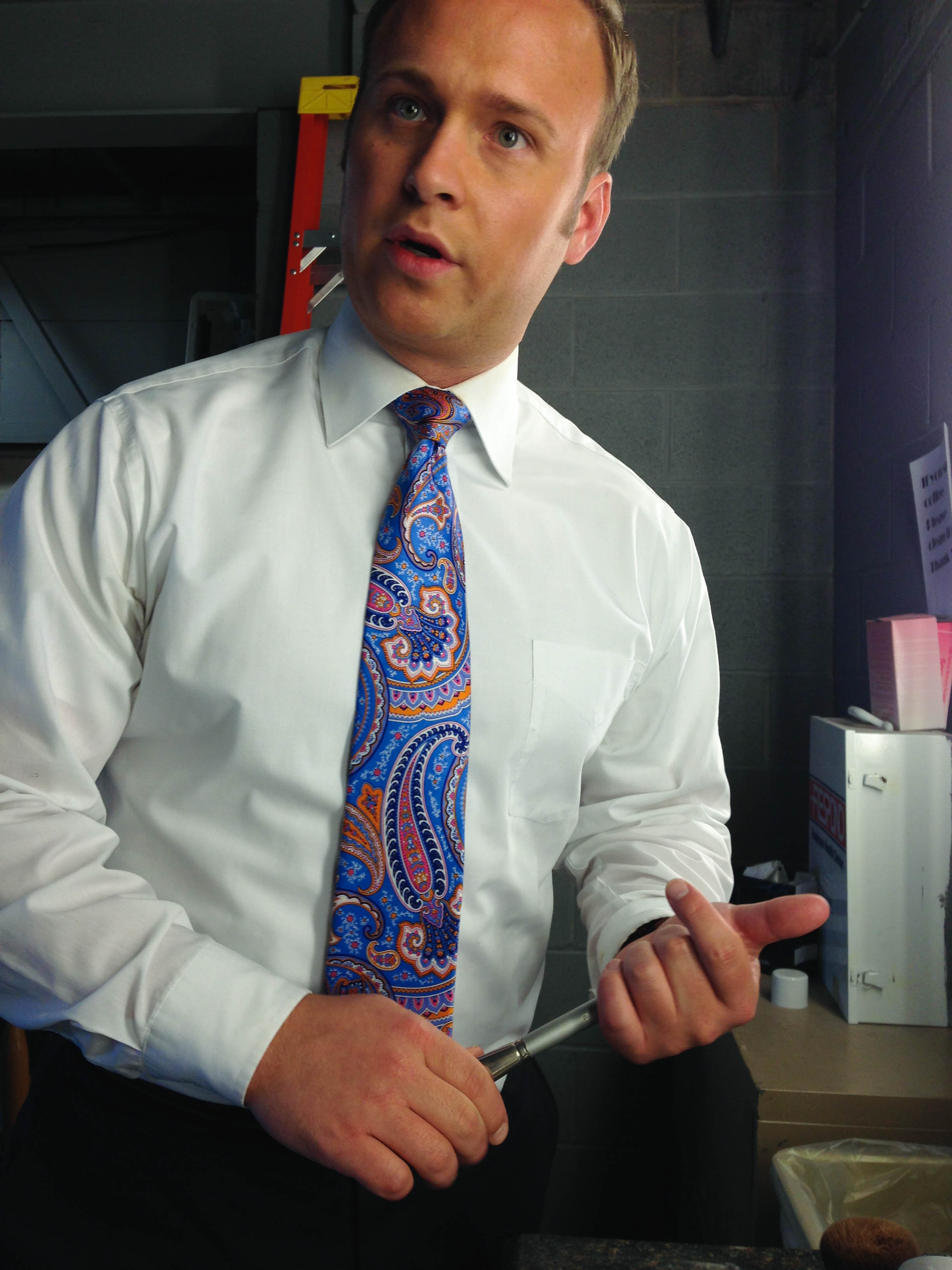Social media platforms and what they are used for hold a different meaning to everyone. In a sense, everyone is aware that each platform has its own etiquette and is used in different ways. Yet the idea of what that etiquette means is not the same amongst the various reporters, editors, web developers and marketing managers across the various news outlets in the community. In fact, the idea of how different platforms should be used is not necessarily static within the outlets themselves.
At The News-Gazette, Bob Asmussen said that he uses Twitter to share his thoughts, yet his co-worker Matt Daniels mentioned that Twitter is better used for presenting facts and sharing news while Facebook has become cluttered with advertisments. “Facebook–it sounds weird, but Facebook has kind of fallen by the wayside–at least in my opinion,” said Daniels. “People use Twitter I think a lot more.”
On the other side of the spectrum however, Dan Corkery of the Gazette said, “The more we started using Facebook–it was just very clear that Facebook was more effective than Twitter. Twitter has become more popular with the highschool set. ”
At WCIA, Drew Wilder mentioned that the conversation on Facebook is more political, while the conversation on Twitter is more loose.
“I feel like the Facebook audience you probably have to be a little more politically correct on,” said Wilder. “Whereas Twitter I think you can say things a little more candidly and no one’s going to call you out. You can just have a little more of a laid back presence on Twitter.”
At WILL Sean Powers said that on Twitter, “There’s a more steady flow of conversation. We can post more content there, whereas Facebook it’s a lot more particular.”
Each newsroom in town has a combination of both veteran and novice reporters. Though veteran reporters bring a substantial amount of experience to the job, not all of them are keen to fully adopt new technological tools in order to execute their work.
“I think that when you’ve been in an industry for a while you adopt certain ideas about the right way to do things, and those can hold you back when the right way changes.”
-Jack Brighton; Web Developer at WILL
That is not to say that all veteran reporters are against using new technologies in their reporting. But having a young reporter who has grown up with technology at their disposal from childhood and a veteran reporter who did not start using it until later in life provides stark contrasts. A younger reporter will automatically place a heavier emphasis on the importance of social media than someone who was not immersed in social media during its boom.
“When I came here four years ago, I was the youngest person here and there wasn’t a huge emphasis in the news department on social media because there were people who had been doing this for much longer, were much older, and they just didn’t grow up with it or learn with it.”
-Sean Powers; Four years at WILL
In turn this causes a discrepancy in what people think social media should be used for. A different perspective due to life experience produces a different opinion on what is the norm.
“The job hasn’t changed, reporting hasn’t changed. The fundamentals of reporting–to get it right you have to insert context into stories. Those things are never going to change for journalism. It’s just the method of delivery is always changing.”
-Mike Howie; 36 years at The News-Gazette
Then, regardless of age there is the discrepancy between what people think the etiquettes are on Twitter and Facebook. Some were of the opinion that no one is really using Twitter anymore but highschoolers. Yet others are of the opinion that Twitter is primarily used by an older age group. Some think the conversation on Facebook is more political than that on Twitter, so they cater their content to fit that opinion. But not everyone thinks in the same way. So how do we know what these etiquettes really are and what to post to each if there are no set guidelines for them?
WCIA and WILL both have interns, while the News-Gazette does not. However, WILL is only now beginning to focus on bringing more interns to their team. By reaching out to the university to bring on unpaid interns to help, there could be drastic improvements.
“The relationship between the College of Media and WILL has always existed. It’s been stronger at other times and weaker at other times and right now we’re in a period of really wanting to strengthen those ties with the college for many, many reasons.”
-Lisa Bralts; Marketing Manager at WILL
Interns could be responsible for tasks that staff do not have time to complete. Additionally utilizing interns from the College of Media could bring in a fresh perspective on social media and social media usage that could be useful. “There’s a lot of really talented people at the college who could get more experience here doing spot news or being interns in social media–especially in helping us develop that presence,” said Bralts.
Everyone would benefit. Interns would be able to boost their resumes, and the newsrooms can spend more time on producing quality work without the worry of being overloaded due to a short staff.
Bria Purdiman, recent graduate of the College of Media, was a temporary hire at WILL for the summer. She mentioned that individuals in her year were not even aware WILL existed until three years into their program.
“A lot of us didn’t even know that the radio station was here. That’s terrible. I don’t think I heard of it until my third year. I drove or walked past it but I never knew it was affiliated or that we could have anything to do with it.”
-Bria Purdiman; WILL
WILL primarily reaches an older audience. This in part attributes to why university students are not aware of its existence. They are however, in the process of connecting to a younger audience by showing up at Quad Day and strategically placing stories in the UIUC subreddit on Reddit.
“I think part of the issue before is that we weren’t offering a lot of internships because what the station was doing was not what the students wanted to be doing. The students were looking ahead and wanting to try all these new things and the station at that time was like, ‘no we’re still going to be doing these things the same way.'”
-Lisa Bralts
-
Each newsroom also places a different emphasis on metrics and analytics. The News-Gazette has a live screen of their sites’ Google Analytics on a television in the newsroom solely for observational purposes. Each day, a note is sent out to the staff with the top stories gauged from the analytics. They see where the traffic is coming from and how many users are online, but don’t necessarily use the information to cater their content to meet that appetite.
- Individual anchors at WCIA pay attention to what people are responding to on different social media platforms as well as their website. They pay attention to what is getting retweets and what is generating likes and comments on Facebook, yet they don’t analyze this information in too great of detail. The station does however have a team of web and web sales people who analyze web metrics for advertising.
- WILL’s web developer Jack Brighton had the most experience with analytics, yet he does not have a staff under him. In designing WILL’s website he pays attention to how people use the site. From this he has noticed that not many people visit the homepage directly, but instead come to it from outside sources. These sources can be social media platforms or search engines. He also pays attention to the amount of time people spend on a page, and if they continue to navigate the site or simply close the tab and go on to another site. Brighton works closely with the marketing director to watch the analytics and see where audience interest lays. Yet they don’t use this information to necessarily cater content based on audience interest.


